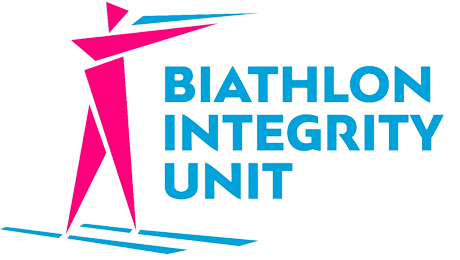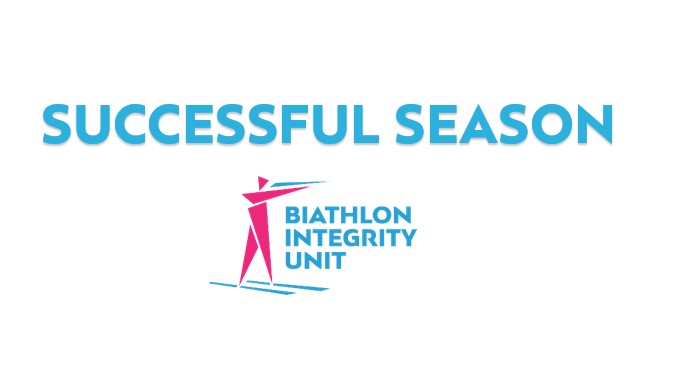First Biathlon Season in new BIU era draws to a close
The first international biathlon season with the Biathlon Integrity Unit (BIU) in place has now drawn to a close, with the BMW IBU World Cup Biathlon ending yesterday in Oestersund, Sweden.
Prior to the 2020/2021 season’s start (in November 2020), the BIU was focussed on planning for a rigorous integrity programme. Despite the Covid-19 global pandemic, the BIU, determined to ensure fairness would prevail, looked at a more adaptable and intelligence-led anti-doping testing plan. Numerous difficulties such as national lockdown rules and biosecurity measures were overcome in this essential pre-season planning phase.
On the ground, the BIU put its energies into fact finding and assessing the suitability of facilities to conduct the anti-doping programme – such as anti-doping stations – and also the performance of testing service providers such as National Anti-Doping Organizations (NADOs).
Where possible under Covid-19 restrictions, the BIU sought to engage face to face with athletes and support personnel (and where not possible, via virtual sessions) to better understand their needs, and also to build relationships that would help better protect biathletes’ rights. As a result of this work performed under challenging conditions, the BIU identified many areas of improvement, not least ways and means of ensuring greater visibility for the BIU. Above all, it highlighted the importance of closer engagement for the BIU with athletes and coaches.
Given the recent introduction of the World Anti-Doping Agency’s (WADA) new International Standard for Education Education (ISE), it is clear that education has become one of the priority areas for the fight for clean sport. The BIU prioritised the importance of education throughout its debut season by delivering Education programmes online. The BIU partnered with the University for Health Sciences, Medical Informatics and Technology’s (UMIT) Institute for Sport Alpine Medicine and Health Tourism to build and implement a comprehensive clean sport education programme; and to discover what target groups need so that the BIU can provide tailor-made education tools for them. By athletes feeding back on what information they require and how best they can receive such information, the BIU will be able to perform more effective education in future.
The season saw a high number of questions and debate surrounding levels of anti-doping testing. Although some factors make it difficult to draw a direct comparison to the 2019/2020 season, the BIU has highlighted that, for example, this season has seen fewer competitions take place (20% fewer competitions) whilst there have still been 88% of anti-doping samples collected compared to the previous season. The BIU has also stressed the importance of its modern and progressive anti-doping programme being seen more broadly than solely on testing numbers, with the efficacy of its programme being viewed through the prism of its more holistic strategy focussed on testing but also investigations, intelligence gathering, whistleblowing and education.
During its inaugural season, the BIU has also been developing relationships with NADOs, other sports integrity bodies and stakeholders committed to promoting clean sport. This is something we will continue to do, in order to share best practice and advance the clean sport cause. It is by learning from each other, and upping each others’ game in the anti-doping movement, that biathletes’ rights will be better protected than ever before.
The BIU is alert to the fact that some individuals involved in cheating are using substances that may not be detectable using current testing methods. To combat this, the BIU has begun a long-term storage project, which has, and will continue to, see samples collected within anti-doping testing retained in a secure environment. As new sample analysis technologies become available, the BIU will use these new methods to test samples in long-term storage. This is yet another method the BIU is employing to keep sport clean and protect biathletes’ rights.
As the BIU embarks on preparation for the second biathlon season since its launch, it’s important to advise biathletes, coaches, other support personnel and the entire biathlon community that our work is far broader than anti-doping. As the BIU grows, and as restrictions following the global pandemic start to ease, our efforts will increasingly focus on other threats to the integrity of our sport; our role is a broad one, after all, focussed on not just combatting doping but also on combatting competition fixing, illegal betting, fraud and on safeguarding biathletes.
As always, if you want to share information or if you want to learn more about what the Unit does, we encourage you to contact the BIU at: info@biathlonintegrity.com


